UW Bioengineering’s diverse cadre of faculty focuses on the most exciting and challenging areas for future growth in the field, and those with the greatest potential for improving lives.
Because UW Bioengineering is based in both the UW School of Medicine and the UW College of Engineering, our collaborations feature rich contact with colleagues; privileged access to facilities, labs and clinics; and a culture of openness.
Read more about our research themes:
Biomaterials & Regenerative Medicine
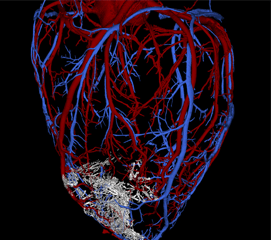 A central theme in bioengineering is the repair and replacement of human tissues damaged by injury, aging and illness. This field bridges UW Bioengineering’s historical strength in developing non-living biomaterials with new approaches based on engineering of the living tissues themselves. UW Bioengineering’s research in this field addresses cardiovascular disease, transplant rejection, wound healing, prevention of bacterial infection, improved prosthetics, and engineering of active neural systems.
A central theme in bioengineering is the repair and replacement of human tissues damaged by injury, aging and illness. This field bridges UW Bioengineering’s historical strength in developing non-living biomaterials with new approaches based on engineering of the living tissues themselves. UW Bioengineering’s research in this field addresses cardiovascular disease, transplant rejection, wound healing, prevention of bacterial infection, improved prosthetics, and engineering of active neural systems.
Instrumentation, Imaging and Image-Guided Therapy
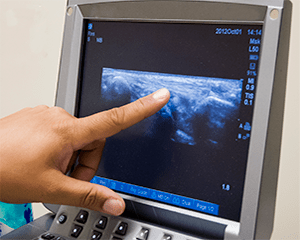 Development of tools has always been central to bioengineering, whether for diagnosis or therapy. UW Bioengineering has long specialized in imaging technology innovation. For decades, our imaging work included systems that probe materials surfaces at the atomic level, with the objective to understand interactions between living and nonliving materials in vivo. Today, our researchers are developing new imaging contrast agents, new computational methods for enhancing imaging, devices to improve the diagnoses and characterization of cancer and other diseases, and technologies to improve treatment through targeted delivery of therapies to diseased cells and tissues.
Development of tools has always been central to bioengineering, whether for diagnosis or therapy. UW Bioengineering has long specialized in imaging technology innovation. For decades, our imaging work included systems that probe materials surfaces at the atomic level, with the objective to understand interactions between living and nonliving materials in vivo. Today, our researchers are developing new imaging contrast agents, new computational methods for enhancing imaging, devices to improve the diagnoses and characterization of cancer and other diseases, and technologies to improve treatment through targeted delivery of therapies to diseased cells and tissues.
Molecular and Cellular Engineering
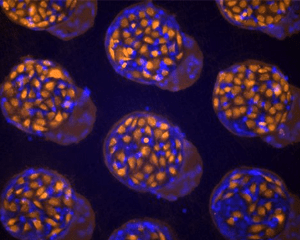 UW Bioengineering’s history of working in biomaterials for implants, drug delivery and biosensors led to great strengths in understanding the basic principles underlying how cells operate. Building on advances in systems and quantitative biology, nanotechnology, biophysics and molecular biology, researchers in this field design new molecules and molecular systems that solve medical problems. Current research includes development of molecular imaging tools, new drugs, drug delivery systems that specific portions of cells, molecular systems that bind to and detect pathogens, and engineered proteins for the treatment of disease.
UW Bioengineering’s history of working in biomaterials for implants, drug delivery and biosensors led to great strengths in understanding the basic principles underlying how cells operate. Building on advances in systems and quantitative biology, nanotechnology, biophysics and molecular biology, researchers in this field design new molecules and molecular systems that solve medical problems. Current research includes development of molecular imaging tools, new drugs, drug delivery systems that specific portions of cells, molecular systems that bind to and detect pathogens, and engineered proteins for the treatment of disease.
Neural Engineering
UW Bioengineering researchers are developing tools that aim to improve quality of life for patients with neurological conditions including stroke, brain and spinal cord injury, multiple sclerosis, epilepsy, autism, hearing and vision loss, and psychiatric illnesses. Integrating interdisciplinary strategies from across bioengineering, electrical engineering and computer science and engineering, UW bioengineers are working towards technologies that could allow patients to control limbs simply by thinking, and that restore sensing ability.
Systems, Synthetic and Quantitative Biology
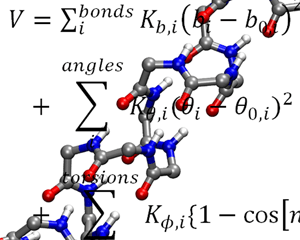 Since our earliest days, researchers in UW Bioengineering have used mathematical modeling to reveal the mathematical underpinnings of human physiology. Initially, this research had applications from cardiology to biomechanics to pharmacology. Lately, our scope has expanded to include the growing field of systems biology, which uses engineering tools to allow us to understand how the complex interactions of genes and proteins run the cells, tissues and organs of the body. As part of the emerging field of synthetic biology, we are now applying this basic knowledge to engineer new organisms that can heal or prevent disease.
Since our earliest days, researchers in UW Bioengineering have used mathematical modeling to reveal the mathematical underpinnings of human physiology. Initially, this research had applications from cardiology to biomechanics to pharmacology. Lately, our scope has expanded to include the growing field of systems biology, which uses engineering tools to allow us to understand how the complex interactions of genes and proteins run the cells, tissues and organs of the body. As part of the emerging field of synthetic biology, we are now applying this basic knowledge to engineer new organisms that can heal or prevent disease.
Technology for Expanding Access to Healthcare
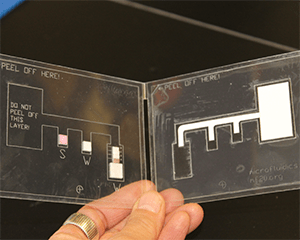 Medical practice is increasingly constrained by cost, and the development of new technologies has historically contributed to the cost of treating patients. To help address this problem, UW Bioengineering is committed to creating cost-effective medical technologies for use in developed and developing countries. This theme influences all areas of the department’s research. Our work on global health includes both therapeutics and point-of-care diagnostic, focusing mainly on microfluidic systems. Some examples of these projects include paper-based diagnostic test strips that can be read with a cellphone camera and Lab-on-a-chip technology.
Medical practice is increasingly constrained by cost, and the development of new technologies has historically contributed to the cost of treating patients. To help address this problem, UW Bioengineering is committed to creating cost-effective medical technologies for use in developed and developing countries. This theme influences all areas of the department’s research. Our work on global health includes both therapeutics and point-of-care diagnostic, focusing mainly on microfluidic systems. Some examples of these projects include paper-based diagnostic test strips that can be read with a cellphone camera and Lab-on-a-chip technology.


